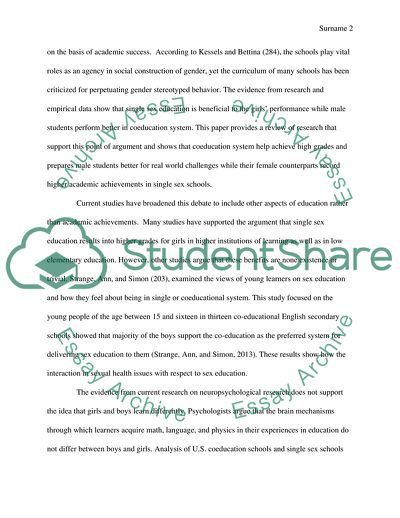Cite this document
(Single-Sex Education Literature review Example | Topics and Well Written Essays - 1750 words, n.d.)
Single-Sex Education Literature review Example | Topics and Well Written Essays - 1750 words. https://studentshare.org/gender-sexual-studies/1826677-single-sex-education
Single-Sex Education Literature review Example | Topics and Well Written Essays - 1750 words. https://studentshare.org/gender-sexual-studies/1826677-single-sex-education
(Single-Sex Education Literature Review Example | Topics and Well Written Essays - 1750 Words)
Single-Sex Education Literature Review Example | Topics and Well Written Essays - 1750 Words. https://studentshare.org/gender-sexual-studies/1826677-single-sex-education.
Single-Sex Education Literature Review Example | Topics and Well Written Essays - 1750 Words. https://studentshare.org/gender-sexual-studies/1826677-single-sex-education.
“Single-Sex Education Literature Review Example | Topics and Well Written Essays - 1750 Words”. https://studentshare.org/gender-sexual-studies/1826677-single-sex-education.


